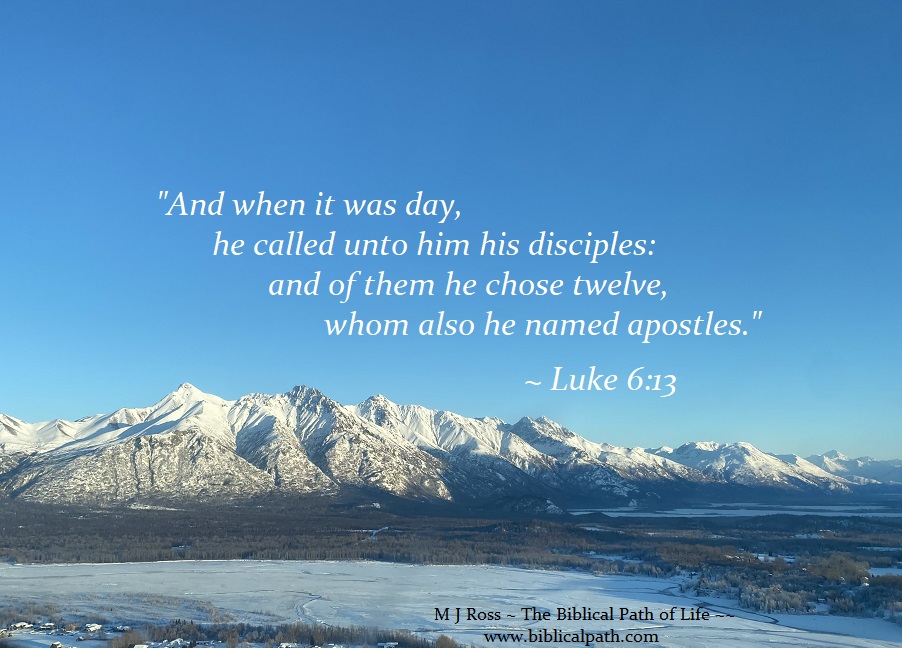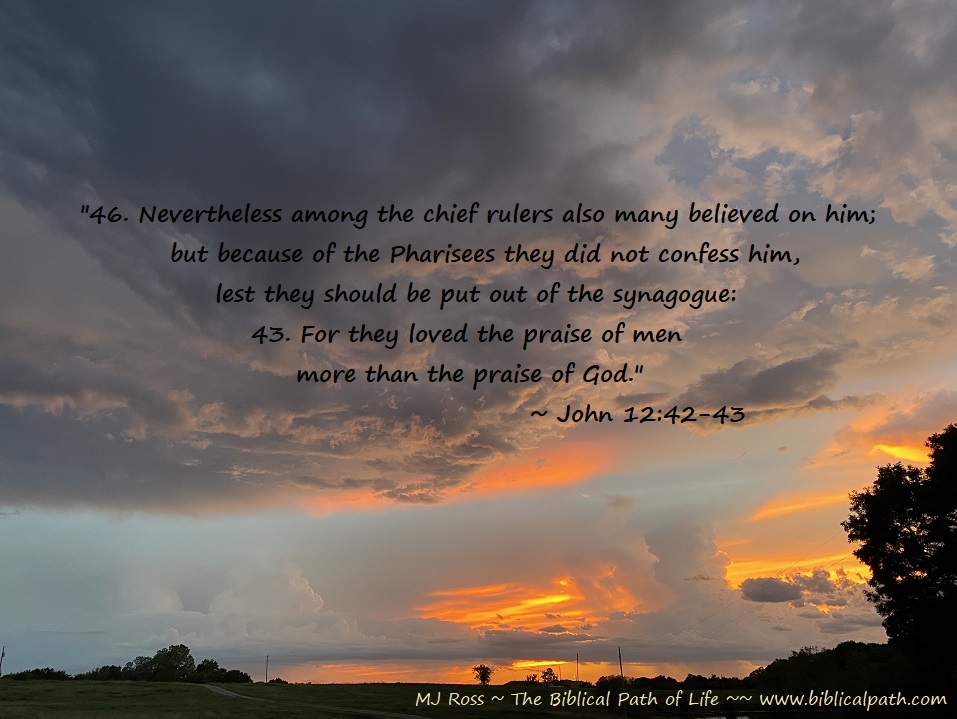
“And when it was day, he called unto him his disciples: and of them he chose twelve, whom also he named apostles.”
Luke 6:13
John the Baptist taught repentance and introduced people to Jesus the Lamb of God. From John’s teachings, many learned they were to follow Jesus. Andrew, Peter (Simon), Philip, Nathanael, James, John, and Matthew were some of the first that Jesus called to follow Him, listening to His teachings. This was an important first step in understanding just who Jesus is.
There were many others who followed Jesus because they wanted to hear His teachings – so many that they crowded Him. Jesus saw the empty ships (for the fishermen had just come in after fishing all night), and asked Simon to thrust the ship out a little from the shore. Jesus taught the people from the ship (see Luke 5:1-3). Jesus finished teaching from the ship. “4. Now when he had left speaking, he said unto Simon,Launch out into the deep, and let down your nets for a draught.5. And Simon answering said unto him, Master, we have toiled all the night, and have taken nothing: nevertheless at thy word I will let down the net. 6. And when they had this done, they inclosed a great multitude of fishes: and their net brake. 7. And they beckoned unto their partners, which were in the other ship, that they should come and help them. And they came, and filled both the ships, so that they began to sink” (Luke 5:4-7). After finishing teaching, Jesus told Simon (Peter) to go out to the deep water and throw out their nets again to fish. Remember that Andrew was Peter’s brother, and he was most likely the other one on this ship. Notice that Simon (Peter) initially objected – but then he obeyed Jesus. Draught means “a catch of fish.” They caught so many fish that their nets broke, and then both ships began to sink because of the number of fish caught. It was at this point that Peter began to recognize who he was before Jesus (see Luke 5:8-9). However, Peter was not the only one affected by this. “10. And so was also James, and John, the sons of Zebedee, which were partners with Simon. And Jesus said unto Simon, Fear not; from henceforth thou shalt catch men.11. And when they had brought their ships to land, they forsook all, and followed him” (Luke 5:10-11). (Read how Matthew phrased it: “19. And he saith unto them, Follow me, and I will make you fishers of men” Matthew 4:19). It was at this point that these four men forsook their old occupation as fishermen of fish, and followed Jesus as fishers of men. If you notice, it said, “they forsook all.” In Matthew chapter four it tells us that James and John were working with their father. They left him, too. They went from wanting to hear Jesus’ teachings and following Him some of the time, to becoming true disciples of Jesus’ who left all (their boats and nets) to follow Jesus. Disciple means “a pupil or learner; more in that it is one who adheres to and accepts the instruction given to him and makes it his rule of conduct.” Jesus called many to follow Him. Each one had to choose to follow or not.
It is after this time that Jesus calls out twelve men out of his many disciples, to become His Apostles. “12. And it came to pass in those days, that he went out into a mountain to pray, and continued all night in prayer to God. 13. And when it was day, he called unto him his disciples: and of them he chose twelve, whom also he named apostles” (Luke 6:12-13). Apostle means “an ambassador; it indicates the distinctive relation of the 12 men Jesus chose to be His witnesses of Him before the world.” Read the names of the 12 Apostles: “14. Simon, (whom he also named Peter,) and Andrew his brother, James and John, Philip and Bartholomew, 15. Matthew and Thomas, James the son of Alphaeus, and Simon called Zelotes, 16. And Judas the brother of James, and Judas Iscariot, which also was the traitor” (Luke 6:14-16).
Notice something interesting:
- There was a general call after they recognized who Jesus was where each man had to make a decision to follow Jesus.
- Next, each one of them had to choose to forsake their old life and commit to a daily walk with Jesus.
- Finally, we recognize that Jesus called these men to be His ambassadors to the world.
Recognize that these are the same callings given to each individual when he or she hears the Gospel message:
- First, one must make a decision to follow Jesus be giving their heart and life to Him (see Romans 10:9: “That if thou shalt confess with thy mouth the Lord Jesus, and shalt believe in thine heart that God hath raised him from the dead, thou shalt be saved.”
- Next, one must forsake their old life and commit to a daily walk with Jesus (see 2 Corinthians 5:17: “Therefore if any man be in Christ, he is a new creature: old things are passed away; behold, all things are become new.”
- Finally, remember that we are called to be Jesus’ ambassadors in this world: (see 2 Corinthians 5:20: “Now then we are ambassadors for Christ, as though God did beseech you by us: we pray you in Christ’s stead, be ye reconciled to God.” Christians are to tell the world about Jesus so that they, too, can become His disciple (see Matthew 28:19-20).
Have you taken these three steps to fully follow Jesus daily in your life?
What must you do to be saved?



